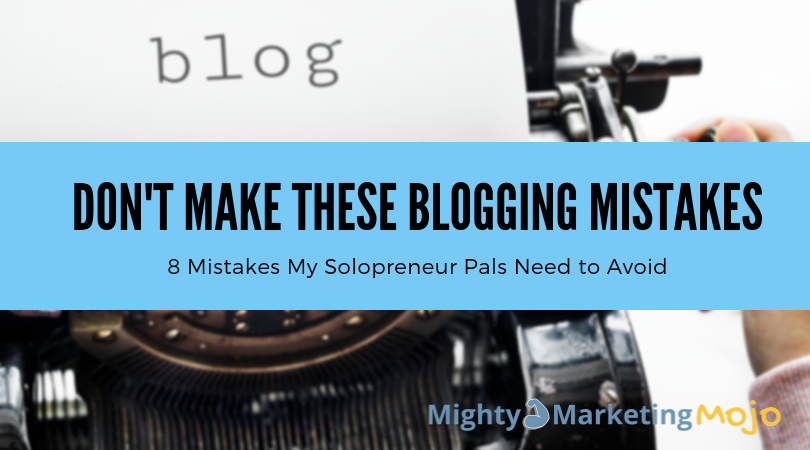If You’re Feeling Stuck for Content Ideas Pick One of These to Use for Any Small Business Type or Niche
Summer is in full swing and the heat could be zapping your energy, fogging your brain, or melting your mojo. Or maybe you’re stuck inside on another cold day and the icy temperatures have your good ideas frozen in your brain. While I can’t give you ice cream treats or a nice warm cup of cocoa, I can share 5 evergreen content ideas to get you unstuck in your business. These topics will work for blog posts (original or go curate some content), live videos on any platform (please, if you do an interpretive dance on TikTok, let me know – it would be reason enough for me to get the app!), as a series of images and short videos in stories on IG or FB, as FB posts, as emails …
OR HEY … mix it up – create a piece of content using one of the topics in one content format and then repurpose it to at least 2 others. Recycling is good for business AND the environment.
Content Suggestions Fit Every Type of Solopreneur Business
These 5 content ideas will work if you are …
- a parenting coach or someone helping mompreneurs
- teaching on mindset shifts for new business owners
- a writer or book coach
- in the health/wellness niches
- talking marketing to other businesses (like me!).
No matter your niche and audience of customers, you can add your own stories or examples and adapt each idea to suit your business and your audience. And you can do so over and over again.
Strategic Content Topics That Lead to Next Steps and Offers
Plus each of these content topics naturally leads to other topics and to opportunities to offer a next step of help as an email opt-in gift, or a low-cost product, or even as a way to lead to your courses or coaching. That makes for more harder-working, more strategic content and less fly-by-the-seat-of-the-pants efforts. Remember, content marketing is to educate and inform while inspiring your audience to take a specific action.
Use the given headlines as blog post titles, video titles, or email subject lines – and just tweak or fill-in-the-blanks with your audience where appropriate. Don’t overthink it, just take the ideas and run!
5 Boredom Busting Content Ideas
How to Stop Feeling Stuck and Move Forward
This topic could be adapted to talk about moving forward with your business structure (LLCs vs Sole Proprietor, etc) or how to move forward with creating and launching your next course.
If you’re in the moms or parents space, it could be on moving forward with getting kids ready for back to school (especially after some weird virtual/hybrid learning times) or moving forward with aiding elderly parents.
For fitness and wellness coaches, talk to your people about moving forward with an improved diet at the end of summer fun or how to stop feeling stuck with the same old at-home fitness routines.
Try these 5 points under the main topic:
- what’s the roadblock or crippling belief behind why your clients say they are stuck (with recipes, fitness, kids, course creation, etc)
- what’s one small step you can recommend to get out of comfort zone
- name one new piece of positive self-talk
- how to ask for outside help
- Then of course recommend they go ask for help – and get a trusted coach – AHEM THAT’S YOU!
See, ANY topic or niche can work here!
Easy ____ Essentials to Boost Your _____
Time to play content creation Mad Libs! Fill in the blanks with your favorite easy tips and ways to boost to get a particular result.
- ‘easy mindset essentials to boost your sales success’
- ‘easy 3-ingredient recipe essentials to boost your morning energy’
- ‘easy hip stretch essentials to boost your flexibility’ [wow, I really need those right now!]
- ‘easy social media essential tips to boost your post engagement’
You aren’t solving all their sales issues or fixing all flexibility – you’re giving them a few easy tips where they can see some fast “aha! moments” and come to see you as a trusted resource with valuable info.
Now also add in what you offer that can also help them Boost X …
Do you have a workbook on sales success tips for biz owners who hate sales?
Can you offer a VIP day – maybe a wellness coach could offer flexibility and core stretch days?
Maybe you have a self-study course on 90-days to greater mobility?
Share a free video about creating more engaging Facebook posts? Have you shared your podcast yet?
Tons of opportunities here to show and tell them where they can get more valuable tips just like the ones you shared in your blog post, video or email.
7 Questions Every _____ Should Ask Before Hiring a ______
Yes, more great fill-in-the-blanks! These are the questions a client or customer should ask before hiring someone like you! But they are often the questions our prospects are afraid to ask, forget to ask, or only think of later on. Be transparent and helpful by showing them how to make a more informed hiring decision.
Examples could be …
- the 7 things someone should ask before hiring a kitchen designers
- the 7 things to ask before hiring someone to design a logo
- the 7 things a new business owner should ask before hiring a lawyer (or a business mindset coach)
- the 7 things to know before hiring someone to help you with public speaking
- 7 things to know before you hire a VA (including what is a VA)
Ask yourself, what are the questions you wish your clients had asked or knew before you ever jumped on a first call? Or what are the common questions that come up in a first call?
If you don’t do 1:1 or group coaching – what about teaching? What things do you wish someone thought about before they jumped in and purchased a class? What are the most common questions that come up in your first lessons or about your core courses?
Another idea – Turn it around – tell them the 7 things you always ask in your first calls:
- what would reaching your goal look like?
- Where do you want to be in 5 years?
- How would 5 years in the future You describe X?
- What do you like most about where you are now in X situation?
- If you had a magic wand, what’s ONE thing you want to change this week?
I Practice What I Teach – Here’s a Video of Me Explaining the 5 Evergreen Content Ideas
5 _______ experts you shouldn’t ignore
This topic is for sharing the people and resources you turn to and introduce them to your audience. Think of this as a specific kind of round-up post. It’s both very valuable and a great place for affiliate links! Share the love time. Who do you follow on a topic in your niche that you think the rest of your people should know about?
Share 3-5 blogs you read all the time or 5 podcasts you always listen to – and most importantly share WHY. Why are these 5 experts in your overall niche that can help your community go further. Maybe they cover some aspect that you don’t. For example, I’m not an Instagram marketing expert – so tell my mighty pals to check out Jenn Herman at JennsTrends.com because she IS a bonafide IG expert and a voice I trust.
Pick one tidbit or best piece of advice you’ve gotten from each person you follow and share in the short paragraphs about each person.
You can repeat this type of content over and over by sharing different experts or different resources. One time it was bloggers, another time it was podcasts. One time you share your favorite recipe sources, another it’s quick videos for stretches. Easily repurpose into graphics for social media, or 5 social posts – one per person.
4 (or 5 or 7 or whatever number greater than 3 lol) ____ traps that could keep you stuck
Every niche has common pitfalls, mistakes, or possible traps that your audience could fall into – and you want to be the person to show them how to avoid those sneaky traps. You can also share how YOU hit a roadblock or trap and how YOU got out of it – be an example to follow.
- 4 common mindset/thinking traps that keep you stuck in a life rut
- 5 common exercise traps that keep you from making fitness progress (or get more specific – 5 common mistakes that keep your legs and hips weak; or 5 reasons you will never actually ‘blast your belly’)
- 6 common snacking traps that keep you low on energy
- 5 behavior traps that keep you and your kids in the fight zone
- 5 writing traps that are keeping you from getting the first draft of your book done
Reassure them that everyone in X Niche falls into one of these traps at times. Paint a picture of the story of how you failed and then how you got out of the trap. Give a tip on how to recognize the traps. Give a tip on getting out of one or two of the traps.
You do NOT have to go into detail on how to get out of every trap – you’re giving them a map of what to avoid and that in itself is very helpful. The logical next is showing in more depth HOW to get out of the traps and that comes in your course, your coaching, or even your email follow-up series after an opt-in.
Link to a freebie or a call where they can get more help getting past the other Z traps and the other hidden lurking traps of X Niche. Keep leading your people to more next steps to keep taking action and seeing even more results.
I love myth-busting and helping my biz pals to avoid tech and marketing mistakes so I’ve used variations on this topic multiple times. I advised on blogging mistakes to avoid; shared about the pros and cons and some mistakes made when I switched email marketing services; plus avoiding bad social media advice.
Pick One Evergreen Content Topic and Create Over the Next Month
These are all evergreen topics – you could come back, update them, or do them again later. They work in all content formats. Use a blog post, or an email – or BOTH! Make a good blog post on the topic, then share the highlights in an email.
Or go from blog post to video, or video then blog post (ahem, that’s what I did -the notes came then the video and both into a blog post). Start from your area of content creation strength.
AND all the topics can all lead to other content and offers. They help educate your audience – not just about X topics but about YOU and your expertise. They give some info on the WHAT and WHY ….
They start to hit on the HOW … but all need more … more HOW. More on HOW TO AVOID, HOW TO KEEP IMPROVING …. Hence, leading to OFFERS. An email opt-in, a webinar, a summit, a video, a course, your 1:1 offers, etc.
Get off the fly-by-seat-of-your-pants content creation treadmill or just throwing any old content up on your blog, start from solid topics that address key, ongoing concerns of your audience. This makes for mightier content. 😁















 Start with a Blog – and Write Often
Start with a Blog – and Write Often
